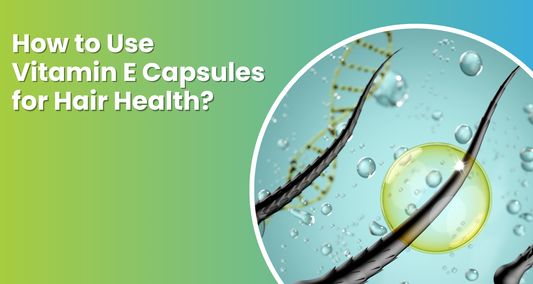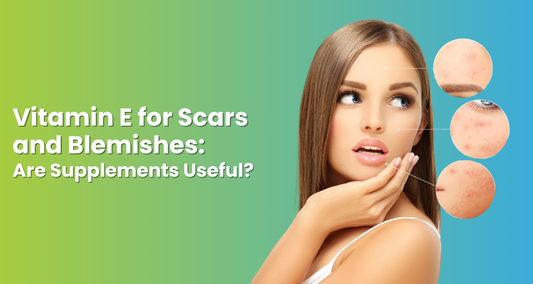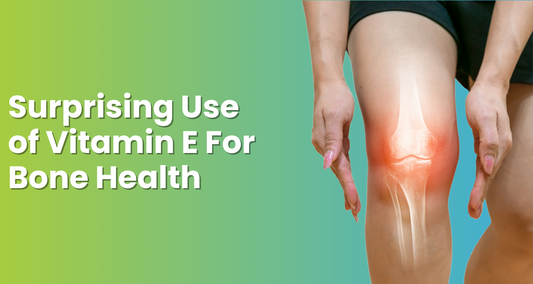Did you know that Vitamin K is not just a single nutrient, but a group of compounds that play a crucial role in our body's functions? This often overlooked vitamin is involved in a wide range of processes, from supporting bone health to aiding in blood clotting and supporting heart and brain wellness.
In this blog, we will explore what is vitamin K good for, its fascinating benefits of Vitamin K and its essential functions, shedding light on why it is so important to include it in our diets.
Key Takeaways:
- Vitamin K is a group of compounds that are vital for various functions in the body.
- What is vitamin K good for? It plays a key role in promoting bone health.
- Vitamin K is essential for proper blood clotting and wound healing.
- It has been found to support heart health.
- Vitamin K also plays a role in brain health and cognitive function.
Vitamin K and Bone Health
Vitamin K plays a crucial role in promoting bone health by aiding in the formation of strong and healthy bones. It is an essential nutrient that contributes to bone health. There are several sources of Vitamin K, including:
- Leafy green vegetables, such as spinach, kale, and collard greens
- Broccoli and Brussels sprouts
- Oils, such as soybean and canola oil
- Herbs, including parsley, basil, and thyme
By incorporating these food sources into your diet, you can ensure an adequate intake of Vitamin K and support your bone health. Additionally, Vitamin K supplements are available for those who may have difficulty meeting their nutritional needs through diet alone.
Vitamin K and Blood Clotting
Vitamin K plays a crucial role in blood clotting, an essential process that ensures wounds heal properly and prevents excessive bleeding. Without an adequate amount of vitamin K, the body's ability to form blood clots may be compromised, leading to potential complications.
The Role of Vitamin K in Clotting Process
When a blood vessel is damaged, a series of complex reactions take place to form a blood clot. Vitamin K is necessary for the activation of certain proteins that are involved in this clotting process. These proteins work together to form a stable clot, effectively sealing the damaged blood vessel and preventing further blood loss.
Implications of Vitamin K Deficiency
A deficiency in vitamin K can result in impaired blood clotting, which can lead to prolonged bleeding and increased risk of hemorrhage. It may also impact wound healing, as the body requires sufficient vitamin K to form the necessary clots that promote the healing process. Individuals who are deficient in vitamin K may experience easy bruising, nosebleeds, or excessive bleeding from cuts or injuries.
Prevention and Treatment of Vitamin K Deficiency
Ensuring an adequate intake of vitamin K through a balanced diet is crucial to prevent deficiency. Good dietary sources of vitamin K include leafy green vegetables, such as spinach and kale, broccoli, Brussels sprouts, and liver.
- Include a variety of leafy green vegetables in your diet.
- Consume foods rich in vitamin K, such as broccoli and Brussels sprouts.
- Consider vitamin K supplements, especially if you have a known deficiency or are at risk of deficiency.
If you suspect you have a vitamin K deficiency or have concerns about your blood clotting ability, it is important to consult a healthcare professional for proper diagnosis and guidance.
Vitamin K and Heart Health
Vitamin K has demonstrated beneficial effects on heart health, making it a crucial nutrient in reducing the risk of cardiovascular diseases. Studies have shown that adequate levels of Vitamin K are associated with a lower incidence of heart-related complications.
Calcium deposition in the arterial walls can be reduced by Vitamin K, specifically, Vitamin K2. This form of Vitamin K activates a type of protein, which may help inhibit arterial calcification.
To support heart health, include Vitamin K-rich foods in your diet, such as leafy green vegetables like kale, spinach, and collard greens. Fermented foods like natto and cheese are also high in Vitamin K2. If needed, consult with a healthcare professional to determine if Vitamin K supplementation is necessary.
Vitamin K and Brain Health
Vitamin K is not only beneficial for heart health, but it also plays a crucial role in supporting brain function and cognitive abilities. Research has shown that adequate levels of Vitamin K can have positive effects on brain health, contributing to optimal cognitive performance and overall mental well-being.
In addition, Vitamin K has also been linked to improved memory and attention span. Studies have demonstrated that individuals with higher levels of Vitamin K tend to have better memory performance and decreased risk of cognitive decline associated with aging.
Vitamin K and Eye Health
Furthermore, Vitamin K is believed to play a role in maintaining eye health. The retina, which is responsible for transmitting visual information to the brain, contains a high concentration of Vitamin K. This suggests that Vitamin K may contribute to the health and proper functioning of the eye, supporting visual acuity and overall eye health.
The Role of Vitamin K in Brain Health and Eye Health:
- Enhances myelin synthesis, supporting optimal communication between brain cells.
- Improves memory and attention span.
- Reduces the risk of cognitive decline associated with aging.
- Supports eye health by maintaining the health and functioning of the retina.
Ensuring an adequate intake of Vitamin K through a balanced diet and, if needed, supplementation can help enhance brain function and support eye health, contributing to overall well-being.
Conclusion
In conclusion to what is vitamin K good for, Vitamin K plays a vital role in maintaining overall health and well-being. To ensure an adequate intake of Vitamin K, it is crucial to incorporate a variety of foods with vitamin K into our daily meals. Food that high in vitamin K include Leafy green vegetables like kale, spinach, and broccoli, as well as foods like eggs, cheese, and meats, which are rich sources of this nutrient.
Additionally, Vitamin K supplementation can be considered under the guidance of healthcare professionals.
FAQs
What is vitamin K good for?
Vitamin K is essential for various functions in the body, including promoting bone health, aiding in blood clotting, supporting heart health, and enhancing brain function.
What are the sources and foods high in vitamin K?
Vitamin K can be obtained from both plant-based and animal-based sources. Some plant-based sources include leafy green vegetables like spinach and kale, broccoli, and Brussels sprouts. Animal-based sources include eggs, meat, and dairy products.
What happens if you have a vitamin K deficiency?
Vitamin K deficiency can lead to impaired blood clotting, which can result in excessive bleeding or easy bruising. It may also impact bone health and increase the risk of conditions like osteoporosis.
How does vitamin K support bone health?
Vitamin K plays a crucial role in bone health by assisting in the formation of strong and healthy bones. It helps increase bone density and reduces the risk of fractures and osteoporosis.
What is the role of vitamin K in blood clotting?
Vitamin K is essential for blood clotting. It helps in the production of certain proteins that are necessary for the clotting process, ensuring proper wound healing and preventing excessive bleeding.




